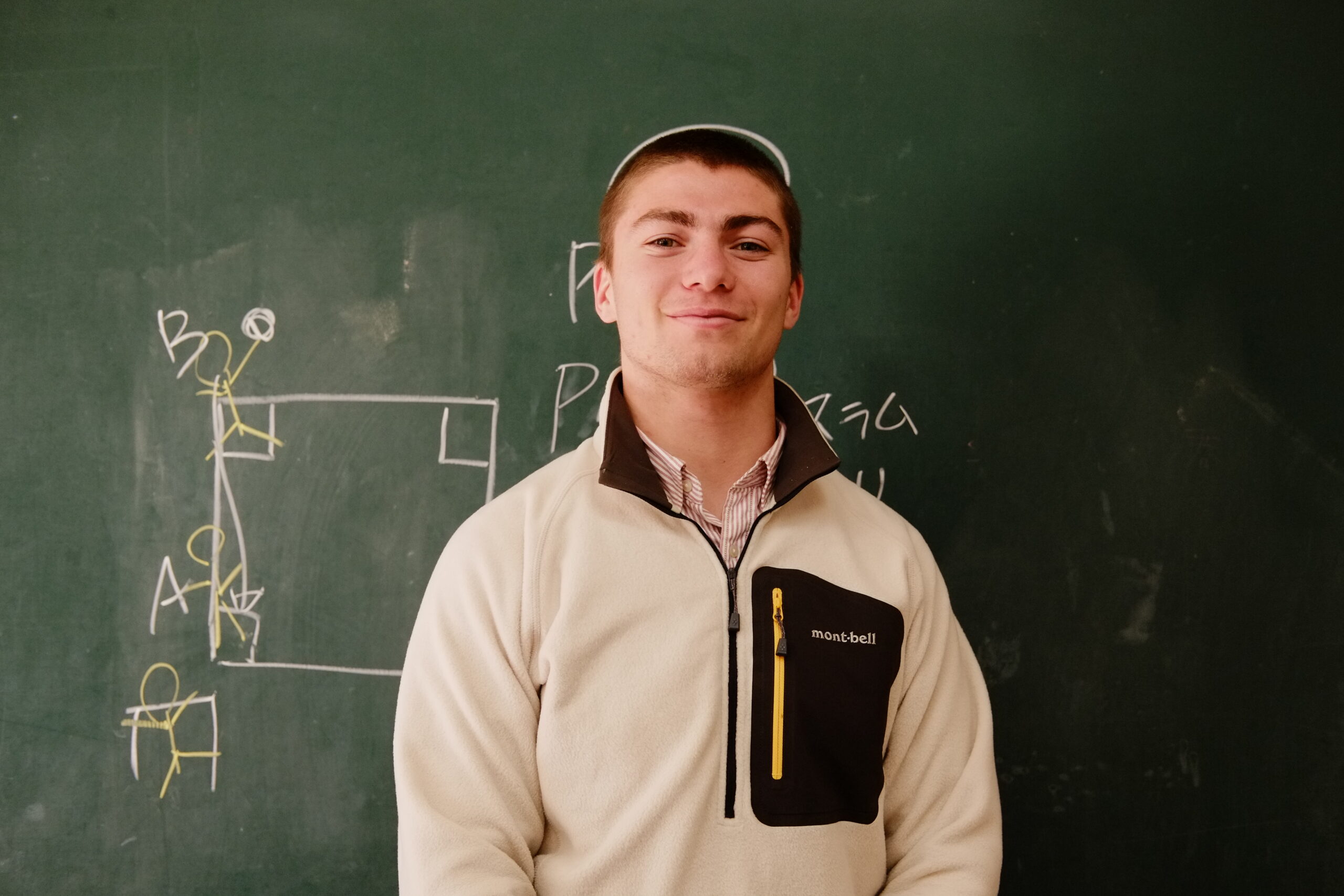This article originally appeared in the February 2024 issue of CONNECT.
Finlay McBride (Kagoshima Prefecture)
Four months ago, I began teaching English in Japan and so far, it’s been nothing short of rewarding.
The students have been incredibly receptive, many of whom I’ve already formed a great relationship with. From the moment I arrive at school to the minute I leave, I’m met by swarms of frantic waves and beaming grins. Throughout the day, the students and I frequently trade jokes in the halls, enjoy a kick about at lunch, and share laughs over my shaky Japanese.
When I’ve not been teaching, I’ve taken part in some of the many cultural activities that Japanese school life has to offer. I’ve rather heavy-handedly constructed an origami crane, stabbed my way through a calligraphy class, and finally showed some promise at sports day after I cruised past my 12-year-old opposition in the relay.
Being an educator is a tremendous privilege. There’s so much substance in shaping the lives of young people and great benefit in equipping them with a skill as functional as knowing a second language.
Teaching, however, has taught me more than I could have possibly imagined. It’s forced me to reconsider how I previously perceived education, to reflect on my own experiences at school, and to rethink my definition of a good learner.
In youth, education is commonly undervalued and largely underappreciated. School can often be viewed as a place of anxiety, monotony, and, in some instances, tension. For many, this detracts from how wonderful school can be, and ultimately deprives those that disengage from the benefits that an education brings.
In my case, having spent only a short amount of time teaching, I now realise how helpful schools really are. The wide array of opportunities that they provide and the depth of resources that they offer.
It never occurred to me growing up that the place I was showing up to each day was designed specifically for my benefit. That every lesson planned, activity created, and worksheet printed were small contributions towards my success. Or that my indulgence in off-topic conversation and attraction to back-row gossip only came at my own disadvantage.
See, what I’ve come to understand is that schools are purposely devoted to the development of their students. It’s not something that I’m claiming as authentic or inconspicuous, but it’s a realisation that’s taken me until now to fully understand.
At school, I never quite grasped that what I was being taught was what I needed to know, or that how I was told to act was how I should have behaved. I always felt as though I knew better. That wasn’t because I was ignorant, but rather because I thought I knew my own needs better than anyone, especially a teacher. Looking back, I can concede that I was horribly wrong; that many of my teachers did in fact know better, yet for whatever reason I chose to pass up on their advice.
What I couldn’t see then but I can see now are the qualities that make a good learner. It doesn’t mean being the most intelligent or hard-working, but being the most interested and invested. It’s achieved by seeing the purpose in what you’re learning and understanding the value of what’s being taught. A good learner is someone who possesses enthusiasm, who is both present and proactive, and who capitalises on the opportunities in front of them.
As the title of this article suggests, there’s a part of me that would go back and do it again—only this time differently.
With my newfound admiration for teachers and a greater appreciation of education, I would be less set on distractions and more intent on digesting the knowledge presented to me. I would challenge myself more, engage further in classroom debates, and have fewer concerns about making mistakes. I would take with me the idea that schools are investors and students are stocks. That with attention and focus my share price will grow and that displays of disinterest or disengagement will cause it to fall.
With that all said, I now pose this question to you. I’d like you to consider if at any moment you took your time at school for granted. Ask yourself whether your perception of education has changed, and if given the chance to go back, what would you do differently? I encourage you to reach out to your former teachers and thank them for their efforts. A small message of gratitude, even at this late stage, will mean a lot to them, I can assure you.
In life, learning never stops. It’s something we continuously get better at. And whilst we can’t change the past, we can improve moving forward. Building little by little, day by day.
Finlay is a first-year ALT based in Kagoshima City. Alongside a passion for writing he also enjoys uncovering Japan, spending time in nature and training in mixed martial arts.




